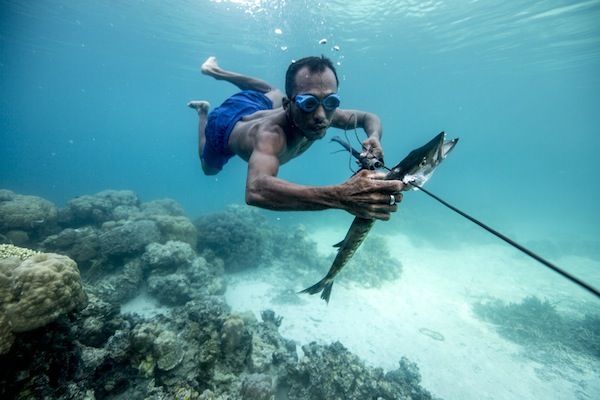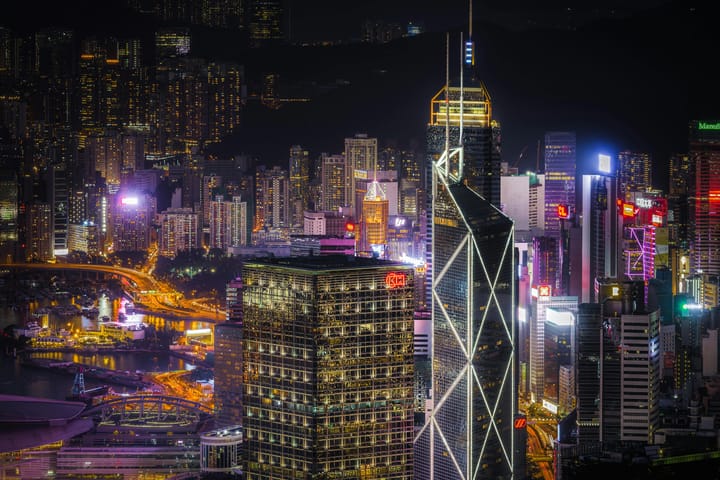The mysteries of South Asia’s extraordinary Bajau freedivers
A whole group of people living in houseboats on the ocean is unusual enough, but there’s something even more interesting about the Bajau.

A few minutes every morning is all you need.
Stay up to date on the world's Headlines and Human Stories. It's fun, it's factual, it's fluff-free.
In Southeast Asia, there’s a tribe of semi-nomadic people known as the “Bajau,” who move around between Malaysia, Indonesia and the Philippines. They’re sometimes called “sea nomads” because they’ve been living at sea for over 1,000 years. The Bajau do come to land, but only really for trade or to get away from storms.
A whole group of people living in houseboats on the ocean is unusual enough, but there’s something even more interesting about the Bajau: they regularly freedive to depths of more than 230 feet to catch their food. Some can reportedly hold their breath for about 13 minutes at a time.
Genetics researcher Melissa Ilardo got to see what they can do for herself. “Underwater, the Bajau are as comfortable as most people are on land,” she said. “They walk on the seafloor. They have complete control of their breath and body. They spear fish, no problem, first try.”
Well, diving is literally in the Bajau’s genes. Ilardo found that the Bajau have bigger spleens than the average person. Her team took ultrasounds and spit samples of different people within the Bajau community. “I wanted to first meet the community, and not just show up with scientific equipment and leave,” she said. “On the second visit, I brought a portable ultrasound machine and spit collection kits. We went around to different homes, and we would take images of their spleens.”
So, what does the spleen have to do with the Bajau’s diving abilities?
The spleen is home to oxygen-carrying red blood cells. When a person goes underwater, their spleen contracts, sending oxygen into their bloodstream so that they can hold their breath for longer. Based on some research on seals, larger spleens might be linked to an ability to stay underwater longer. The Bajau’s spleens are about 50% larger than those of another group of people living on an island nearby. But, even community members who don’t freedive had larger spleens, suggesting that there was something genetic going on.
To figure out exactly which genes might be responsible for their unique abilities and larger spleens, more Bajau people would need to be tested. Ilardo’s study used a sample size of 43 people. But there would need to be thousands to really narrow down what’s causing this spleen situation.




Comments ()